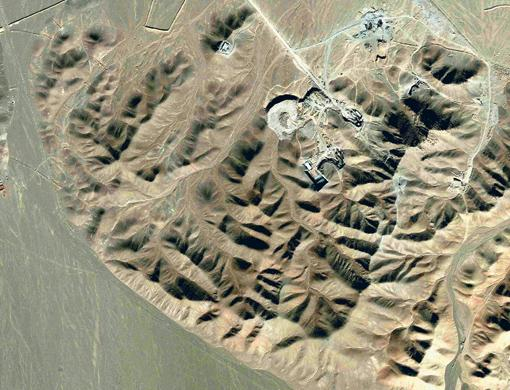
Tehran: Iran plans to construct a new nuclear reactor for radio-isotope production that is "more powerful" than its Tehran research facility, atomic chief Ali Akbar Salehi said on Wednesday.
Salehi said Tehran will be also ready with its first batch of fuel plates for the existing Tehran research centre by September 2011.
The atomic chief added Tehran will adopt a "dual-track" policy in dealing with the world powers, which imposed new sanctions on Tehran even as they offered to discuss its nuclear programme.
"Iran is designing a reactor to produce radio isotopes, which will be more powerful than the Tehran reactor," Salehi was quoted as saying on state television's website.
The project would "probably take about five years," Salehi said, adding the that the location was not yet finalised, ISNA news agency said in a report that indicated it would be a 20-megawatt reactor.
Salehi said Tehran wanted to commission "several such reactors across the country so that we can produce radio isotopes for sale and export to the regional and Islamic countries that need them."
Since October, the Tehran research facility has been embroiled in Iran's confrontation with the West over its fuel supply.
Iran and world powers have been unable to agree how to provide the 20-percent enriched uranium which, when converted into fuel plates, powers the facility.
World powers have raised doubts about Tehran's boastful claims it can make the fuel plates, but Salehi said Iran had "acquired the technical knowhow."
"Starting next year (from March 21), we will produce experimental fuel plates. Based on our timetable, we expect the first batch (of actual plates) to be ready by September next year," Salehi said.
The announcement is yet another defiant step by Iran which started purifying uranium to 20 percent on its own despite outrage from the powers which slapped on the sanctions last week.
Many world powers suspect Iran of using its nuclear programme as a cover for developing an atomic bomb, a claim denied by Tehran.
The UN Security Council resolution specifies that Iran must abandon the enrichment drive.
In a fiery parliamentary session on Wednesday, speaker Ali Larijani called on Iran government to push ahead with high enrichment.
"The bullying countries must understand that their illogical pressure will be proportionately reciprocated by the level of our uranium enrichment which would depend on our needs," he told parliament, the assembly website said.
Lawmakers also voted to study as a "priority" a bill that would ensure that the government continues the high enrichment work, state news agency IRNA said.
"The government will be obliged to carry out the 20 percent enrichment and manufacture the required fuel plates (for the Tehran reactor)," influential lawmaker Alaeddin Borujerdi was quoted as saying by IRNA.
The bill will also "make the government prevent (UN) inspectors from entering Iran should they again share information (regarding Iranian nuclear programme) with foreign media and other countries."
Salehi said Iran will also adopt a "dual-track" policy to deal with the countries that have been implementing such a strategy against Tehran.
"Our dual-track policy is to have dialogue based on honesty as a first step and, as a second step, to push ahead with our nuclear programme in order to confront the pressure from enemies."
World powers have been advocating what they say is the "carrot-and-stick" policy - applying pressure through sanctions and urging dialogue - to make Iran halt enrichment.
President Mahmoud Ahmadinejad criticised this Western policy on Wednesday, vowing Tehran would now set the conditions for future talks.












